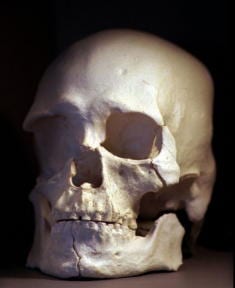Episode #56
News Items
Interview with Ken Feder
- Author: Frauds, Myths, and Mysteries: Science and Pseudoscience in Archaeology
http://www.amazon.com/gp/product/076742722X/002-1805300-9476801?v=glance&n=283155Feder obtained his B.A. in anthropology in 1973 from the State University of New York at Stonybrook. He obtained his M.A. in anthropology in 1975 from the University of Connecticut and his Ph.D. from the same institution in 1982. He has taught in the Department of Anthropology at Central Connecticut State University since 1977 where he is now a full professor. His primary research interests focus on the archaeology of the native peoples of New England and in the analysis of public perceptions about the human past. He is the founder and director of the Farmington River Archaeological Project, a long-term investigation of the prehistory of the Farmington River Valley. He is the author and co-author of several books including: Human Antiquity: An Introduction to Physical Anthropology and Archaeology (with Michael Park; now in its fourth edition); Frauds, Myths, and Mysteries: Science and Pseudoscience in Archaeology (now in its fourth edition); A Village of Outcasts: Historical Archaeology and Documentary Research at the Lighthouse Site; and The Past In Perspective: An Introduction to Human Prehistory (in its third edition). He also is the co-editor of and contributor of two chapters to the most recent (seventh) edition of Field Methods In Archaeology; and he is the editor of Lessons From the Past: An Introductory Reader in Archaeology and co-editor (with David Poirier) of the book, Dangerous Places: Health and Safety in Archaeology. His latest book, Linking to the Past: A Brief Introduction to Archaeology has just been published by Oxford University Press. When he’s not digging in the dirt or writing books, he likes to hang out with his one wife, two kids, and three cats.
Kennewick Man legal update: www.physorg.com/news74502213.html
Abiogenic Origin for Oil
- I work in the oilfield industry, and I thought of a controversy for you. Have you ever heard of the abiotic or abiogenic origin of oil (see for instance en.wikipedia.org/wiki/Abiogenic_petroleum_origin)? It seems to be prevalent in some Russian oilfield related circles. I do not believe it to be sound science, but it is intriguing to see it appear every now and then, albeit rarely, in otherwise ‘informed’ circles. Is this a topic that is sometimes discussed in the skeptics’ community?
Best regards,
Stephane Virally
Paris, France - Do you have any idea what this petroglyph might be depicting? Creationist websites claim it is a dinosaur. See www.bible.ca/tracks/native-american-dino-art.htm
Thanks very much.
Peggy Hall - In response to the question of which phenomena that were once denied by skeptics but have since become scientifically verified:
I think acupuncture is a perfect example (and one of a very few I could think of). It was as ridiculed and placed in the same category as current pseudoscientific practices but has since been accepted by physicians and the scientific community as effective. Now in regards to the theory of why it works, you could say the ‘chi’ model is still in the realm of
pseudoscience, but nonetheless the actual practice seems to work.Haig Shahinian
California
Science or Fiction
-
Item #1
Fiction
At a currently ongoing meeting of the International Astronomical Union in Prague, astronomers have decided to strip Pluto of the title of planet. Henceforth Pluto will be designated an ice dwarf.
-
Item #2
Science
NASA has lost the original footage of the Apollo 11 crew landing on the moon. A search for the lost footage is under way.
-
Item #3
Science
New study finds that women’s sex drive plummets once they are in a stable relationship.







